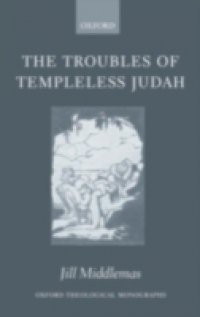The time of the Babylonian capitivity (c.587-539 BCE) is of seminal importance for the formation of the Hebrew Bible as well as for the religious development of Judaism. Previous studies of this era have usually privileged the perspective of the community of captives (the Golah), and the period is known as the `Exilic Age'. Jill Middlemas challenges this consensus, arguing that the Golah community represents only one viewpoint, and that the experiences andcontributions of the majority of the Judaean population, those who remained in Judah, need to be more fully appreciated.

